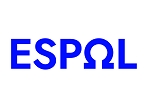Présentation
Prerequisite: basic knowledge of international relations theories and 20th century international relations history.
The course will start by analysing different understandings and dimensions of global governance (actors, institutions, norms and their interlinkages) in a variety of fields. The course will then critically assess possible global governance futures and conclude on possible options to reinforce and relegitimise governance –for example through institutional reforms or regionalisation.
Learning objectives : gain a deeper understanding of global governance processes and institutions; compare different issues areas and assess possible governance outcomes; improve research, reading, analytical and drafting skills as well as oral expression for policy, advocacy and research.
Modalités
This course will guide the students to become self-directed learners in the field. It will be interactive and make use of various media material to stimulate discussions.
For each class, there will be three compulsory readings.
Ressources
Acharya, A. (2016). The Future of Global Governance: Fragmentation May be Inevitable and Creative. Global Governance, 22 (4), pp. 453-460.|| Bang, G. J., & Skodvin, T. (2016). The Paris Agreement: Short-Term and Long-Term Effectiveness, Politics and Governance. Politics and Governance, 4.|| Baylis, J., Owens, P., & Smith, S. (2017). The globalization of world politics: an introduction to international relations. Oxford: Oxford University Press.|| Beisheim, M. (2018, October). UN Reforms for the 2030 Agenda. Are the HLPF's working methods fit for purpose? SWP Research Paper, 9.|| Bordeleau, C., Chalifoux, J. J., & Sangha, K. (2015, January). The Global Fight Against Terror: An Evaluation of Counter-Terrorism Governance. (W. P. Series, EÌd.) Canadian Network for Research on Terrorism, Security and Society , 15 (01), pp. 3-17.|| Christensen, T. (2017). The European Union and Global Governance. In A. Triandafyllidou, Global Governance from Regional Perspectives: a Critical View. Oxford: Oxford Scholarship Online.|| Beeson, M. (2019). The Forerunners of Global Governance : A Brief History. In M. Beeson, Rethinking Global Governance. London : Palgrave MacMillan.|| Finnemore, M., & Sikkink, K. (1998). International Norm Dynamics and Political Change. International Organization, 52 (4).|| Goldin, I., & Mariathasan, M. (2014). The Financial Sector. In I. Goldin, & M. Mariathasan, The Butterfly Defect. How Globalization Creates Systemic Risks and What to do about it. Princeton: Princeton University Press.|| Hadden, J., & Seybert, L. A. (2016). What's in a Norm? Mapping the Norm Definition Process in the Debate on Sustainable Development. Global Governance , 22 (2), pp. 249-268.|| Hafner-Burton, E. M., & Tsutsui, K. (2005, March). Human Rights in a Globalizing World: The Paradox of Empty Promises. American Journal of Sociology, 110 (5).|| Harman, S. (2016, August). The Bill and Melinda Gates Foundation and Legitimacy in Global Governance. Global Governance, 22 (3), pp. 349-368.|| Herrera, G. (2002, January). The Politics of Bandwidth: International Political Implications of a Global Digital Information Networkk. Review of International Studies, 28, pp. 93-122.|| Kahler, M. (2018). Global Governance: Three Futures. International Studies Review , 20 (2), pp. 239-246. Kahler, M. (2016). The Global Economic Multilaterals: Will Eighty Years Be Enough? 22 (1), pp. 1-9.|| Keohane, R. O., & Victor, D. G. (2011). The Regime Complex for Climate Change. Perspectives on Politics, 9 (1), pp. 7-23.|| Koser, K. (2010). Special Issue on International Migration and Global Governance. Global Governance , 16 (3). Margulis, M. (2013). The Regime Complex for Food Security: Implications for the Global Hunger Challenge. Global Governance , 19 (1), pp. 53-67.|| Orsini, A. (2019). Complex Systems and International Governance. Forum introduction. International Studies Review.|| Ramsay, R. (1984). UNCTAD's Failure: The Rich Get Richer. International Organization , 38 (2).|| Sithole, K. (2016). NGO-ICO Relations: Amnesty International, Council of Europe and Abolition of the Death Penalty. Global Governance, 22.|| Stephen, M. D. (2017). Emerging Powers and Emerging Trends in Global Governance. Global Governance, 23 pp. 483-502.|| Weiss, T. G., & Wilkinson, R. (2018). International Organizations and Global Governance (2nd edition). London: Routledge.|| Weiss, T. G., & Wilkinson, R. (2019). Rethinking Global Governance. Polity.|| Williams, D. P. (2017). Global and Regional Peacekeepers: Trends, Opportunities, Risks and a Way Ahead.Global Policy , 8 (1), pp. 124-129.
Relevant e-journals: Global Governance, World Policy Review, Global Policy, International Organization, Global Society.
Relevant think tanks (with English-speaking articles) : USIP, Brookings, CSIS (United States of America), DIE, SWP, GPPI (Germany), the Hague Institute for Global Justice, ECDPM, Clingendael (Netherlands), SIPRI (Sweden), ODI, LSE Ideas, Oxford Martin School (UK), Egmont, UNU-CRIS (Belgium), CIGI (Canada).






